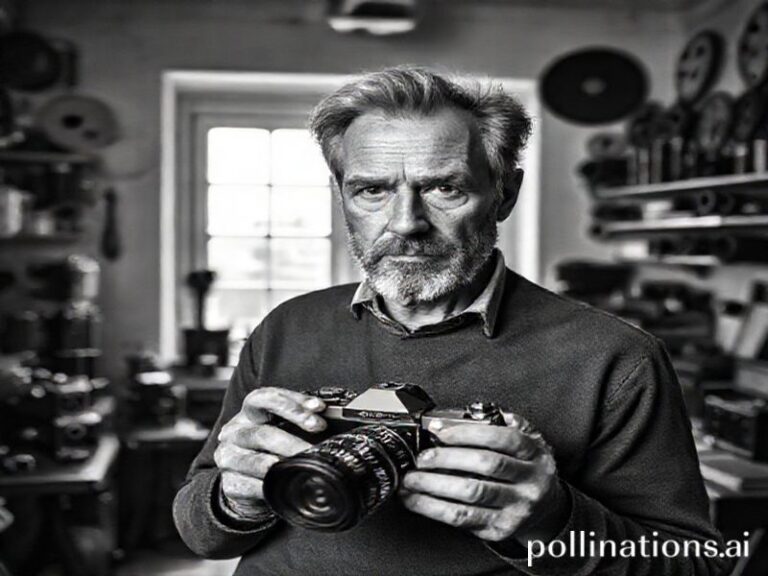From Mediterranean Decks to Geopolitical Deck Chairs: How Katya Kuropas Became the War’s Unlikeliest Stress Test
Katya Kuropas: The Zelenskyy In-Law Who Accidentally Became Geopolitical Clickbait
By Our Correspondent, somewhere between a Kyiv bunker and a Mediterranean yacht slip
The world has many pressing questions—climate tipping points, supply-chain apocalypse, whether Elon Musk will eventually buy the moon—but this week the chattering classes have instead latched onto Katya Kuropas. For the uninitiated, she is the 21-year-old daughter-in-law of Ukrainian President Volodymyr Zelenskyy, recently photographed in what tabloids breathlessly called “a sun-kissed Mediterranean idyll” while her father-in-law was begging parliaments for air-defense batteries. Cue global pearl-clutching and the sort of moral outrage normally reserved for people who recline their airline seats too aggressively.
From Washington think tanks to WhatsApp groups in Lagos, the image ricocheted like shrapnel. In Kyiv, officials sighed the weary sigh of people who just lost another city to blackouts. In Moscow, propagandists toasted with whatever vodka isn’t sanctioned. And in Berlin, commentators queued to explain why Ukrainian elites must never enjoy sunshine—an irony not lost on anyone who has seen German cabinet members summering on Sylt. The subtext, delivered with the subtlety of a Kalibr missile, is simple: suffering must be equally distributed, preferably on camera.
Let’s zoom out. Ukraine’s war economy now runs on a potent cocktail of Western tax dollars, crypto donations, and sheer morale. Every frothy Instagram story from a demi-celebrity therefore becomes a referendum on solidarity. Katya, marketing graduate turned reluctant geopolitical prop, is merely the latest volunteer for unscheduled symbolism. One does not simply sip Aperol in peace when the global risk premium on wheat futures is watching.
The Mediterranean, incidentally, has long served as Europe’s preferred stage for moral theater. Think of Churchill painting in Marrakesh while bombs fell on London, or more recently, Greek island-hopping influencers documenting “refugee chic.” Katya’s crime was timing: her bikini season coincided with the first anniversary of Russia’s missile barrage on Odesa. Algorithms, like Greek Furies, are unforgiving.
Still, the pile-on reveals a universal truth: humans adore a morality play with clear casting. The West wants its Ukrainian heroes stoic and mud-flecked, not lounging on teak decks. Meanwhile, Russian state TV edits the footage into a morality tale about decadent “Nazi” godfathers—an accusation that lands with the approximate accuracy of their battlefield maps. In between, TikTok stitches the yacht photos to air-raid sirens, scoring millions of views and exactly zero strategic insight.
Financial markets, ever allergic to nuance, barely twitched. Wheat futures held; the hryvnia dipped a polite 0.3 percent—roughly the same reaction you’d get if the central banker sneezed on Zoom. The real damage is reputational, measured in think-piece column inches and late-night Telegram memes. Ukraine’s government, seasoned in crisis comms, deployed the classic three-step defense: 1) Note that Katya is a private citizen, 2) Remind everyone the family hasn’t fled the country, 3) Suggest critics volunteer for trench duty if leisure offends them so deeply. The statement was released in four languages, including Japanese, because global outrage is a multilingual beast.
And what of Katya herself? Sources close to the family say she’s “mortified,” a condition curable only by deleting the app and possibly half the internet. Good luck; the Streisand effect now has its own sanctions list. Meanwhile, a cottage industry of “Where’s Katya?” trackers has emerged, turning her next cappuccino into a potential market event. If she orders oat milk, expect a NATO briefing.
In the grand bazaar of modern warfare, optics are currency. Ukraine has spent billions cultivating them; Russia counterfeits them daily. A single yacht photo is therefore not mere gossip—it’s a stress test for the fragile scaffolding of global empathy. The lesson? In 2024, even family vacations are subject to balance-of-power analysis. Pack sunscreen and a communications strategy.
Conclusion: The planet will keep spinning, grain corridors will reopen or they won’t, and somewhere Katya Kuropas will eventually finish that marketing degree. But for one news cycle she reminded us that wars are fought on spreadsheets, in bunkers, and, increasingly, in the comments section under bikini pics. History may not judge her harshly, but the algorithm already has—sentence served, no parole.







